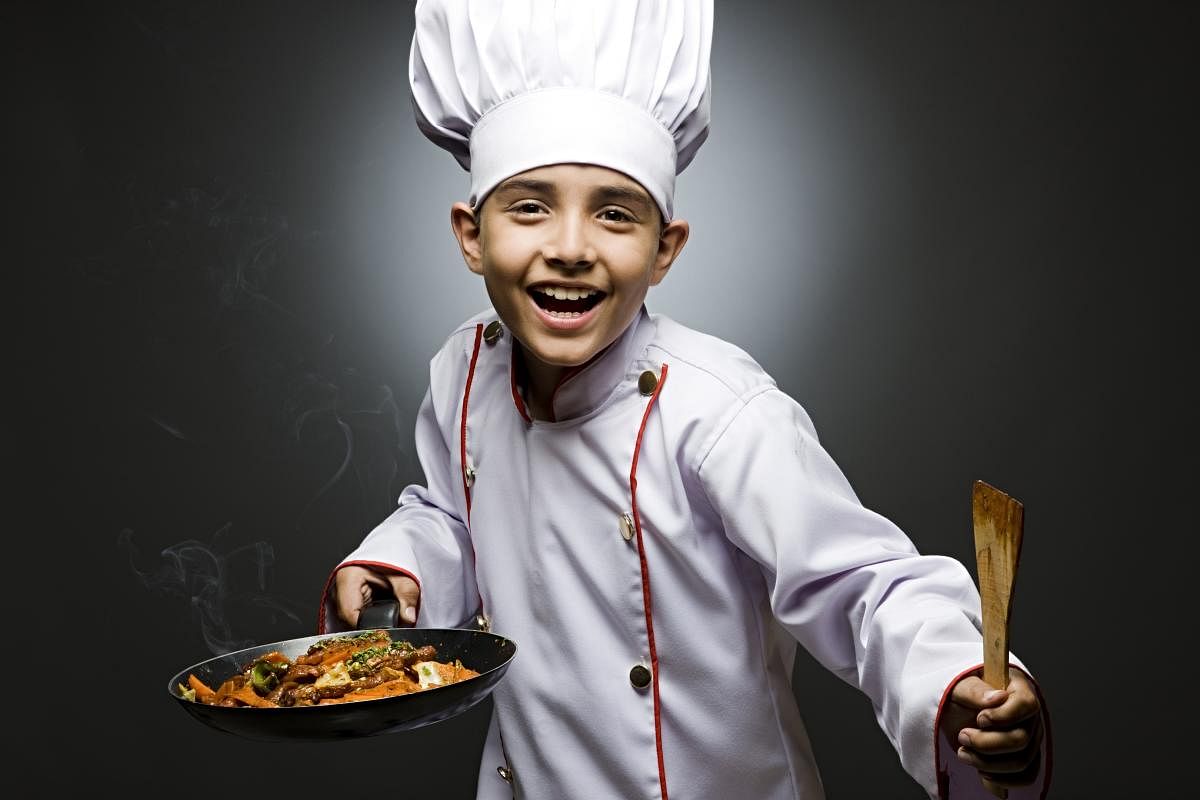
Chefs make the most important component of the hospitality industry. Imagine any celebration. Weddings, religious functions, parties, business meetings or conferences without their participation. They are indispensable to the food business.
Cooking is a specialised art as well as a craft. A creative, artistic, practical and scientific mind is a chef’s asset. Cooking is all about understanding ingredients, techniques, flavours and nutrition. The chef has to know about preparing and cooking food and also it’s presentation and marketing.
Being a sunrise industry, the food and beverage industry in India will continue to grow, giving chefs unlimited employment opportunities, both domestically and globally. Indian-origin chefs are earning plaudits all over the world for their skills in the kitchen and their evolution as major restaurateurs as they invent new dishes of cuisines not necessarily Indian.
Hail to the chef
Entrepreneurial chefs such as Masterchef Sanjeev Kapoor and Zorawar Kalra are opening restaurant chains serving Indian speciality and regional cuisines abroad. A few private companies are successfully marketing packaged salty-sweet snacks internationally. Knowledge about India’s novel cuisine has travelled far and wide.
Culinary schools offer courses to acquaint novice chefs with the basic skills but the training begins after schooling as only hands-on experience teaches them the skills of the profession.
Presently there are 29 institutes of hotel management and 5 food craft institutes run with support from the Ministry of Tourism. There are also a large number of institutes in the private sector run by hotel companies.
A one-year training programme at a catering college provides the skills needed for creating bakers and tandoori chefs. A 3-year course leading to a degree or diploma from a management institute imparts knowledge about management in addition to cooking expertise and a masters degree is awarded after a 4-year programme.
Even for specific trades like bakers, tandoori chefs, there are 6-month skill development programmes by the government. There are also new culinary institutes started by the government which offer 3 to 4-year programmes. There is even an Academy of Pastry Arts In the private sector.
Growing industry
Growth opportunities in the hospitality sector are immense. The Indian restaurant industry employed 7.3 million people in 2018-19 according to statistics released in the National Restaurant Association of India (NRAI) 2019 report. The number is expected to hit 9.2 million in the next five years.
According to statistics released by the Ministry of Tourism last year, India has over 300,000 rooms in the approved and unapproved hotel categories. Given the Ministry’s estimated growth in foreign tourist arrivals, an additional 1,80,000 hotel rooms will be required by 2020.
Consequently, international hotel chains and domestic brands have major plans to expand their brands in India. As a result, there will be a marked increase in employment opportunities for chefs.
Not just the hospitality industry, they have evolved into other areas, with career options such as entrepreneurship and institutional catering with the Indian Railways, cruise liners, flight kitchens, the Defence services, universities, religious places like Gurdwaras, non-governmental organisations. Chefs will be in great demand in Europe and the USA soon due to their ageing population.
The new generation favours eating out or ordering meals for home delivery. They prefer processed, branded and ready-to-eat food. As a result, the online food retail market is expanding. The food preservation and packaging industry is another vocation. The industry employs 1.7 million people and will require an additional 9 million people by 2024.
About 30% of India’s 1.3 billion population belongs to the middle class and this segment is estimated to grow by 50% in the next five years. Growing disposable incomes and changing lifestyles is promoting growth in consumption and frequency of eating out.
The restaurant industry has been expanding in terms of varieties and numbers with the entry of many more international cuisines and opening up of eating places which serve authentic international and region-specific cuisines from different states of the country. As per the aforementioned NRAI report, the restaurant industry is 20 times bigger than the film industry and 4.7 times that of the hotel industry
The shortfall of quality talent makes it all the more necessary to bridge the demand-supply gap of chefs.
(The author is former chairman of India Tourism Development Corporation)